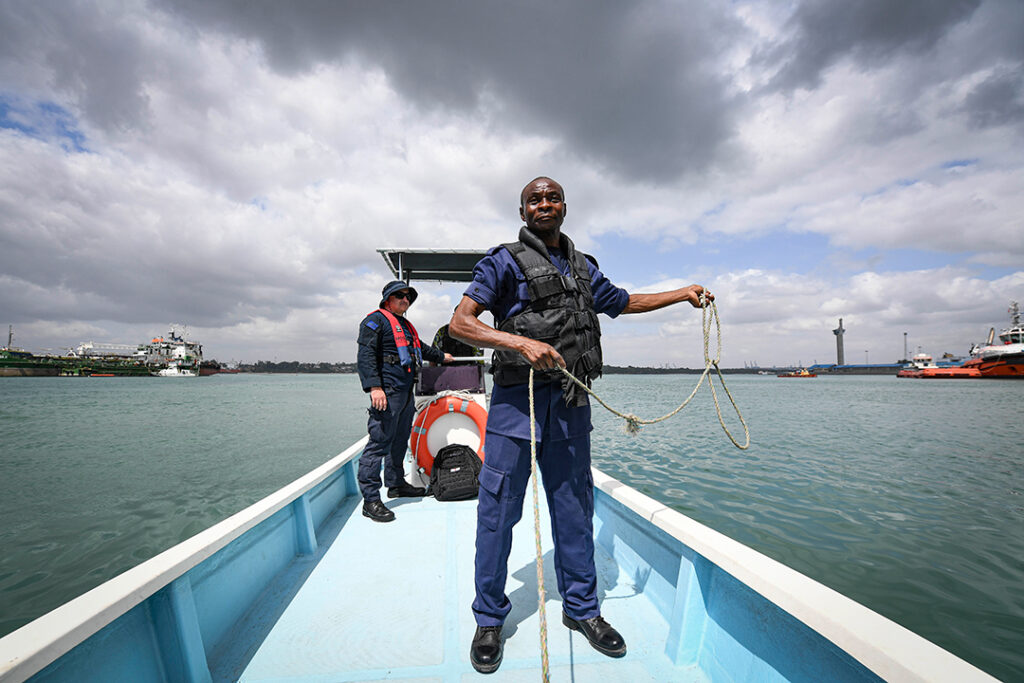ADF STAFF
In its continuing efforts to combat illegal, unreported and unregulated (IUU) fishing, Kenya ratified the Cape Town Agreement (CTA) and the International Convention on Standards of Training, Certification and Watchkeeping for Fishing Vessel Personnel (STCW-F) in mid-March.
Adopted by the International Maritime Organization in 2012, the CTA outlines fishing vessel standards and regulations to protect crews and fisheries observers, according to Pew Charitable Trusts.
Vessels engaged in IUU fishing are less likely to provide their crews with food, medicine and adequate shelter, and crew members are often forced to work in deplorable conditions, experts say.
In 2021, Kenyan fishermen working on Chinese vessels complained of unpaid wages, unfair terminations and long working hours. They also said they were forced to work after their three-month contracts expired. Ghanaian fishermen have described similar circumstances aboard Chinese fishing vessels.
China is the world’s worst IUU fishing offender, according to the IUU Fishing Index, and has targeted African waters for decades.
Foreign trawlers are known to change their vessels’ names, fail to register at ports, underreport their catch, fish in prohibited areas and use destructive fishing equipment. These practices lead to overfishing, the destruction of ecosystems, food insecurity and loss of income for local artisanal fishermen. In Kenya, bottom trawling has devastated coral reefs, which are critical to sustaining marine life.
Kenya announced its CTA ratification weeks after the Kenya Coast Guard Service partnered with the U.S. Department of State, Bureau of International Narcotics and Law Enforcement Affairs, and the United Nations Office on Drugs and Crime to fight sea crimes in the Indian Ocean, Kenyan newspaper Daily Nation reported.
Operating under the Global Maritime Crime Programme, the forces will cooperate on training as well as arresting and prosecuting perpetrators of sea crimes. The partnership will include training at Bandari Maritime Academy in Mombasa, where forces can access a visit, board, search and seizure simulator, also known as a “ship in a box.”
“The failure to effectively search vessels for drugs and interdict crime in this sector has serious consequences on trade, security and social development in the country and the region,” Samson Mwathethe, who heads Kenya’s Oceans and Blue Economy Office, told the Daily Nation. “The ‘ship in a box’ is therefore an important training facility for maritime police units and the Coast Guard Service.”
The simulator is made of standard shipping containers assembled like the bridge of a vessel, enabling forces to practice boarding techniques to inspect ships. Principal Secretary of Shipping and Maritime Nancy Karigithu said it is the first such facility in East Africa.
“This facility bolsters maritime law enforcement in the Indian Ocean region by enhancing the region’s capability to disrupt and respond to maritime crime threats,” Karigithu told Daily Nation.

